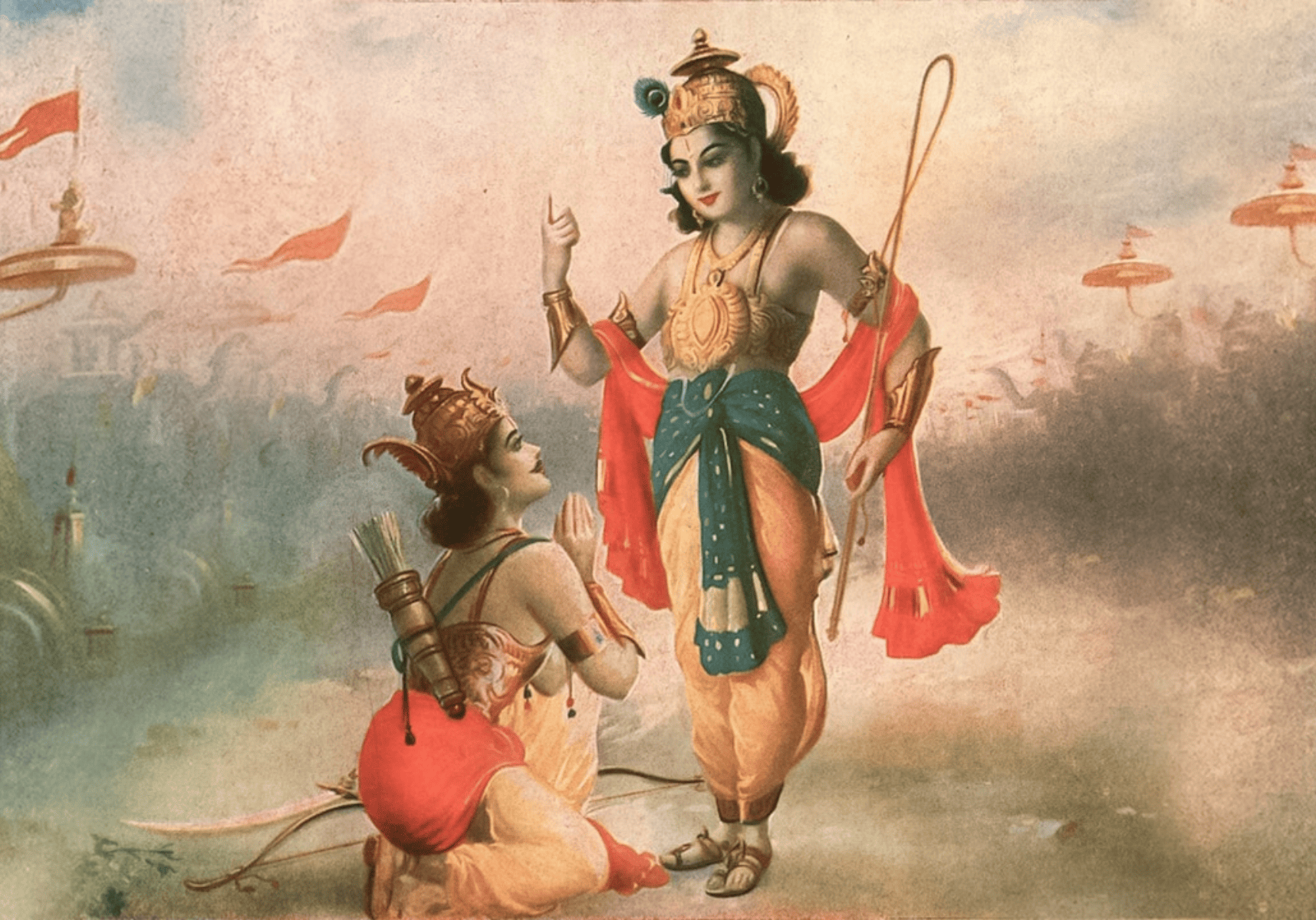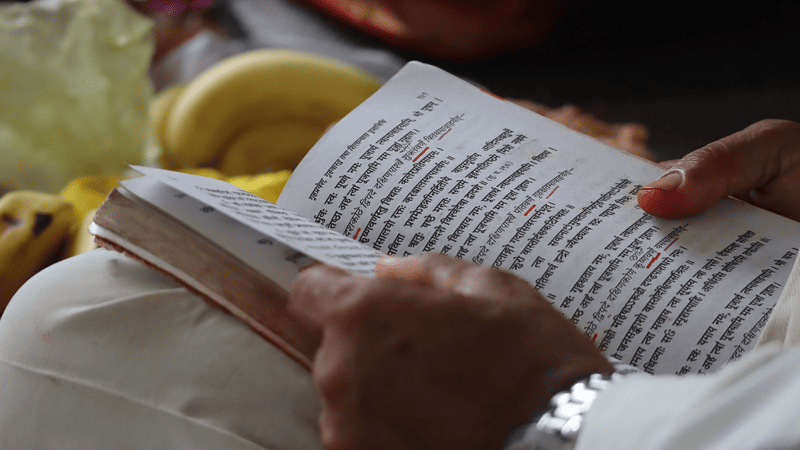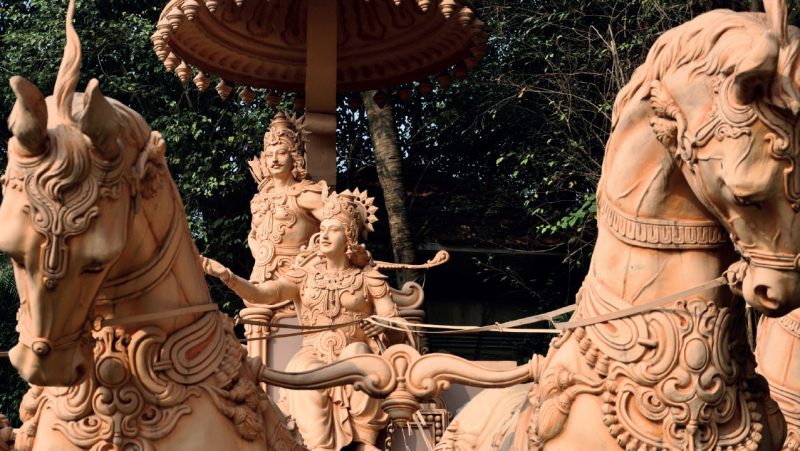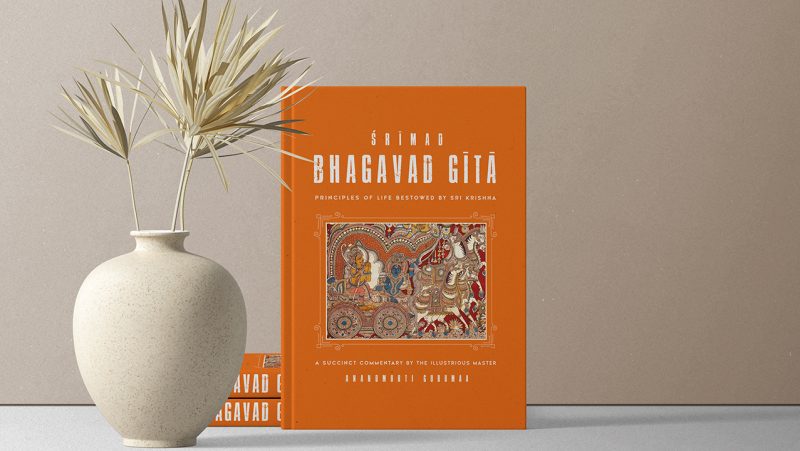
The Bhagavad Gita in Daily Life
Five verses that help deal with grief - By Anandmutri Gurumaa
Reading time: 4 minutes
One of the most celebrated scriptures in the world, the Bhagavad Gita, continues to intrigue, inspire and illumine the human mind even today. Comprising 700 verses in 18 chapters, sage Vyasa’s stupendous piece of work is a powerhouse of Upanishadic wisdom. Using a backdrop of Arjuna’s moral dilemma and despair, perennial existential conflict is resolved by unravelling the nature of the Self, the nature of God, and the various ways of realising the ultimate Truth.
All scientific advances in the outer world notwithstanding, the human quest for meaning and purpose in life entails that the Gita continues to be as relevant, even in the 21st century. This exceptional text has something to offer to everyone. Be it a serious spiritual seeker or a man of the world, everyone can benefit by taking something relevant to their daily lives.
One such universal issue we all have to deal with is coping with the grief of death and dying. I have selected five verses from the Bhagavad Gita that help us understand what dies and what doesn’t. This helps us cope with the inevitable mortality of our physical bodies.
1: The Embodied Soul Never Dies
‘The embodied soul is separate from the body. It passes from childhood to youth to old age. And then, after the death of this body, it acquires a new body, a new form. The wise one does not get disconcerted by this change in form.’ (Chapter 2, verse 13).
Gross, subtle and causal, these are your three bodies. But you are aware of only your gross body. At the time of death, the gross body gets shed, and the subtle body acquires a new gross body. Jeevātman (the soul) continues this cyclical journey from one gross body to another. What changes is just the gross body, jeevātman (soul) remains the same, and the subtle body remains the same.
2: The Transient Never Lasts
‘That which is eternal will never cease to be. That which is transient will never last. The wise realise this veritable truth.’ (Chapter 2, verse 16).
At no time will there be an absence of absolute existence. Whereas the illusory has no substantial reality. These are fundamental facts. What-so-ever you perceive through your senses, know that despite perceiving it, it is not real. The body, which you perceive whilst awake, that perception disappears in dreams and deep sleep. That which is perceived sometimes and not perceived at other times, that which changes, is finite - is untruth. Truth, on the other hand, is that which is eternal, never-changing and all-pervasive.
3: Never born, never dies
‘The pure Self (Atman) is neither born nor dies. Nor, having once existed, does the Self ever cease to be. The Self is unborn, eternal, changeless and ageless. The Self is not destroyed when the body is destroyed.’ (Chapter 2, verse 20)
When did the Self come into being? There is no date, no time for its coming into existence. It is without a beginning. The Self has no birthday and hence has no death day. It is eternal, ever-existing. Shri Krishna says: that which will not be destroyed even after the destruction of the body, that which is eternal, primordial, indestructible – that is My real identity, that is who ‘I’ really am. He says to Arjuna: Why are you worrying? Why are you despairing? All bodies, including your relatives, are destructible, but the Self is indestructible, eternal. Death cannot touch it.
4: No more than a change of form
‘Just as a person sheds worn-out clothes and wears new ones, similarly, at the time of death, the Self casts off the worn-out body and embodies a new one.’ (Chapter 2, verse 2.22)
People are happy to get new clothes in return for their old ones. Then, why should you be sad when prakriti (primordial nature) does the same exchange for you? When your body ages and gets worn out, prakriti takes away the old body and gives you a new body in time. Death of the physical body is no more than a change of form.
5: The Self is indestructible
‘Weapons cannot cleave the Self, nor can fire burn It. Water cannot wet It, nor can the wind dry It.’ (Chapter 2, verse 2.23)
The hierarchical relation of the pure Self with the gross body is as follows: Behind the gross body is the mind, behind the mind is the intellect, behind the intellect, is the ego, behind the ego is ignorance and behind ignorance is the Ātman, the Self. The gross elements (earth, water, fire, air and space) can affect only the gross body. They can desiccate, dampen and scorch only the physical body. But they do not affect the eternal Self.
Thus, the Bhagavad Gita tells us that death cannot touch who we really are. Once you get the conviction in the reality of this statement, you will transcend grief forever.
For more information, do refer to my book The Bhagavad Gita- a succinct commentary on Amazon and www.gurumaa.com








